why can't it live in the wild
A Couple Adopted a Puma Cub That Couldn’t Live in the Wild
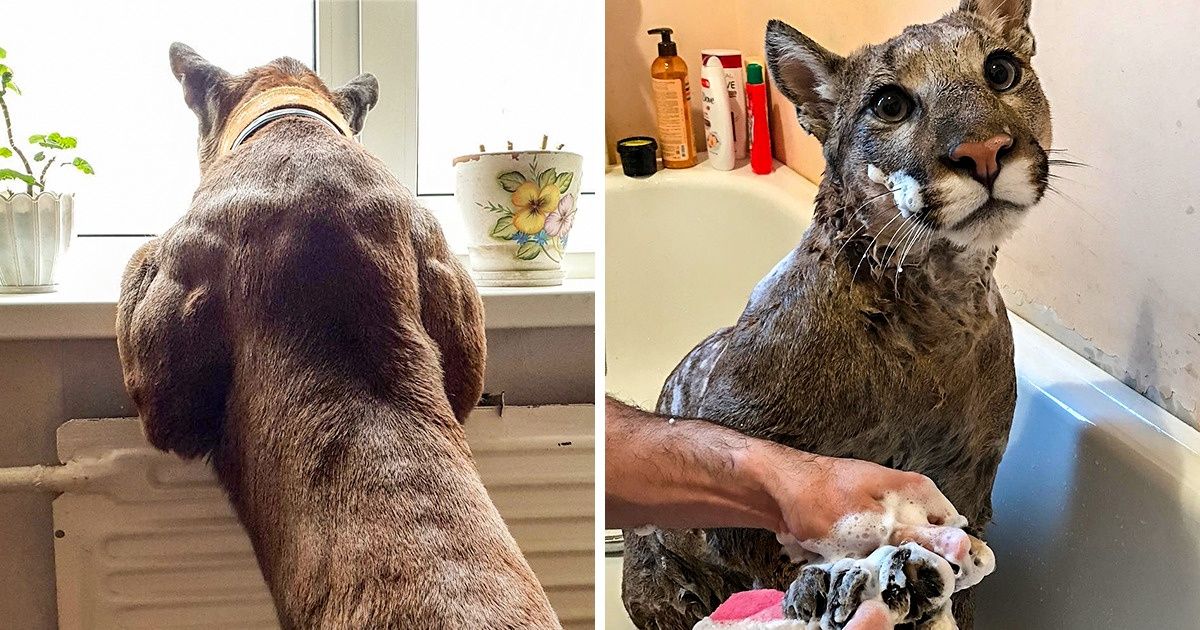
“Hello, this is Sasha and Masha. And this is our puma, Messi.” How would you like it if your neighbors said this to you? Well, don’t freak out; we assure you that this wild cat is very well-behaved, and the owners are extremely responsible people. And the story of this unusual family can teach us a lot.
We at Bright Side believe that the capacity that humans have to make contact and give love is something that can help to blur the line between a wild and a domestic animal. Our hard work and patience are sometimes rewarded with a bond and love from the most unexpected creatures.
Messi and his brothers were born in captivity.
The FIFA World Cup was coming up and all 3 cats that were born at a zoo were named after famous soccer players. A short time later, Messi was sold to another zoo, where he met his future parents Alexander and Marya.
Their love at first sight was stronger than common sense, logic, and any worries. Several days later, the couple asked the owner of the zoo to sell the puma to them... and the owner agreed. However, the couple was informed that the kitten had been prone to getting sick often and required a lot of care and attention.
But this didn’t influence his “parents’” decision. Neither did the fact that a part of the hall in their apartment had to be rebuilt to look like a house with a ladder and a tree for climbing. The doorways were also turned into giant cat scratchers for huge paws. Experts also recommended putting a mirror on one of the walls (so that Messi doesn’t feel lonely). The new owners bought him a lot of toys and treats. In other words, they were super-prepared.
They never even considered returning Messi to the wild.
Messi was a weak kitten: he had chronic cystitis, rickets, and muscle atrophy — and these were just the first problems Alexander and Marya had to encounter. Walking him in the morning and in the evening didn’t help prevent accidental toilet problems until they figured out an alternative for emergencies — the bathtub, a litter box big enough for a cat this size.
It was difficult to walk with him in the beginning because of his illnesses. But after several months of taking vitamins, Messi could walk for 1.5 miles and even jump a little. But there was another problem that he had — a broken paw when he was a kitten.
Messi’s owners continued to increase his walking distance gradually and were happy when they had even the slightest success, until Messi started walking with a limp. It turns out that he had a problem with his hip. So, his parents had to look for someone who could provide a balanced training schedule. But who would agree to work with such an exotic student?
They made dozens of calls to all kinds of trainers and everyone kept saying “no.” But one day, someone said “I’ve worked with lynxes, not with pumas, but let’s give it a try.”
So, Messi had 4 classes a week, both individual and in a group. Obviously, Messi was very different from every other animal. It was hard for him to build a relationship with dogs. But the right attention and a friendly atmosphere were fruitful: the dogs accepted Messi even though he was not like them at all.
Professional training was good not only for Messi’s health, but he and his owners developed a much stronger connection and understanding of each other and Messi became a much more intelligent cat. For example, after looking at the video below, would you believe that he used to go crazy when he saw food?
There is actually nothing amazing about how fast Messi the puma developed: he is extremely intelligent. He opens doors and windows himself, he sits down when he knows he did something wrong, and he apologizes.
Messi’s life is not just about orders and lessons.
Cats are still cats, no matter their size, which is why this is what happens to all the boxes in the house.
Just like smaller felines, Messi loves playing with something round. But instead of balls of yarn, he prefers bigger objects, like watermelons and pumpkins.
Even though he has all kinds of toys, Messi still believes there is nothing more fun in the world than a plastic bottle. Maybe it’s because all of his regular toys break really easily. Or maybe it’s because plastic bottles make a lot of noise.
Despite his training, his owners don’t always win. For example, this photo shows how the rule “No pumas in the bed” works in their house.
But who could say “no” to such a sweet guy?
The right care and regular vet visits have made Messi’s life much better.
Because of the multiple illnesses he had as a kitten, he is still 1/3 smaller in size than other pumas. But Messi is in great shape and this allows him to travel a lot.
He feels very comfortable traveling in a big car and is very interested in walking around forests, fields, beaches, and mountains. His owners try to take him everywhere.
Messi is a cat that loves communication. He feels great being a part of the family and with other animals. His story inspires people from all around the world and proves that true love is the universal language that unites all living creatures on this planet.
What do you think of this story? Do you think that a wild animal can live with people given the right circumstances and proper care?
Comments
A few years ago a hyper aggressive cat came into our neighborhood, he would beat the snot out of all the cats in the area, raccoons and some dogs avoided him, he was named Meathead due to hundreds of bloody battles with other animals as his head was constantly a bloody mess.
Eventually I trapped him and had him fixed. Even the vet wanted this cat out of his clinic as soon as possible. He was going full on with the metal cage. In fact he made the other animals in front of him wait, and they ran some tests, he had a .22 long bullet in him, and two .17 pellets as well. (Tough cat to survive that) Released him back, and he became less aggressive. I ended up adopting him and he refuses now to go outside as he loves my other female cat.
One day he had a seizure and was diagnosed with FIV. The vet that fixed him was shell shocked this is the same crazy cat, all cats mellow out after being fixed, but at that time, the vet said the odds of him being adoptable was near zero, on top of that, he said he probably has three months to live.
I loved that vet, and in a sad twist of fate, he passed away about three months later and Meathead three years later is still healthy and is a friendly lovable sweetheart, who still won’t go outside. I don’t know if I’d trust a puma to share my home, but this story about that puma is pretty dang awesome.
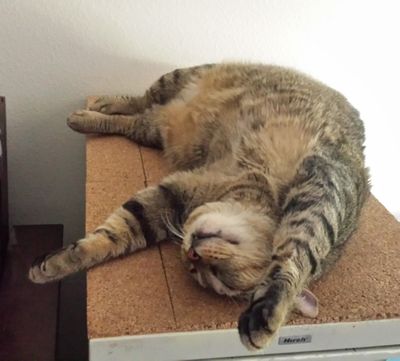
Related Reads
15 Moments That Prove Quiet Kindness Still Holds the World Together
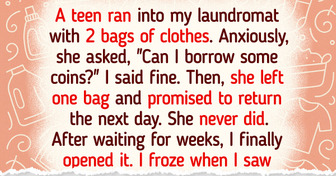
22 People Who Found a Hidden Treasure Where They Least Expected It
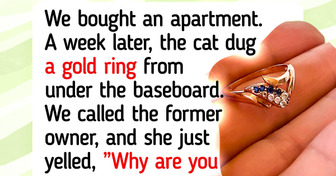
I Refuse to Give My Son His Father’s Inheritance—He Needs to Be on His Own Now
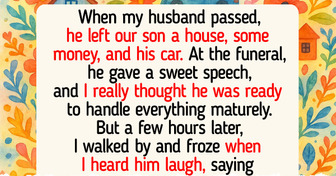
10 Honest Stories That Capture the Struggles and Pain of Blended Families
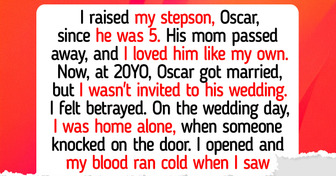
13 Stories That Show the Softest People Have the Strongest Hearts
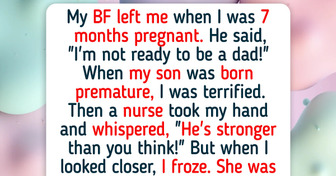
I Refused to Help My Sister Save Her Dying Kid, My Money Isn’t a Family Tradition
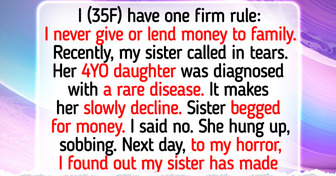
I Refuse to Keep Supporting My Daughter and Her 5 Kids for Free

15+ Heartfelt Times When Women Proved There’s a Rainbow After Every Storm

I Refused to Take My Stepdaughter on Our Family Trip

My Mom Ignored Me for Years, Then Suddenly Begged Me for Help

10 People Who Show Us the True Power of Kindness
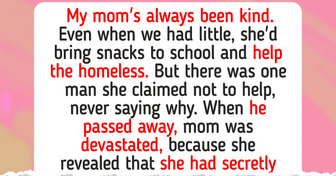
15 Stories That Prove a Small Spark of Kindness Can Light Up a Fading Soul
